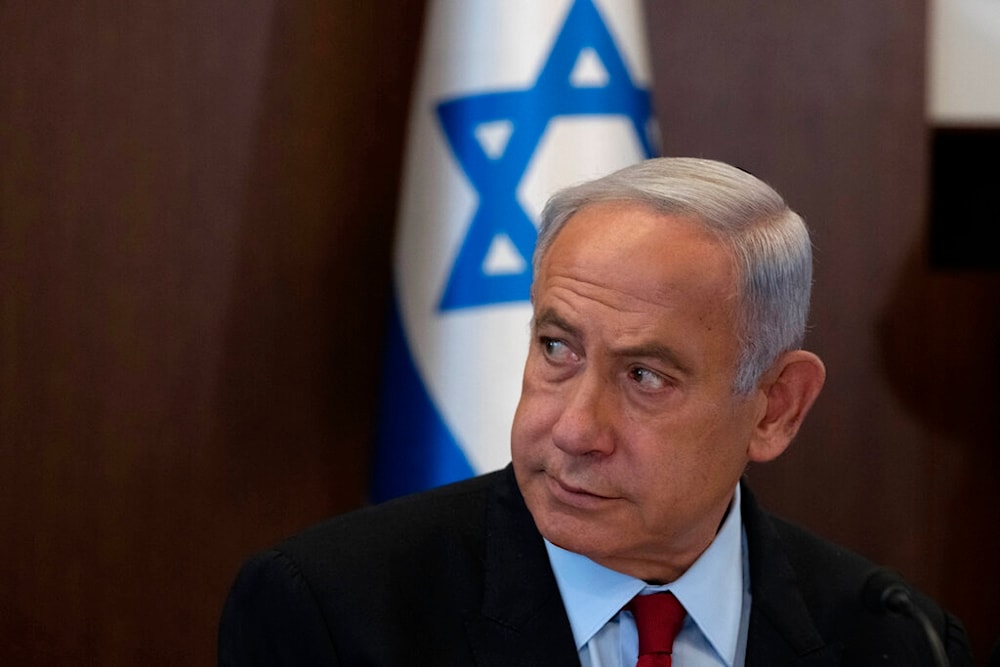How Sino-Israeli relations soured amid genocide: Times
China's explicit support for the Palestinian cause and criticism of US actions at the UN exacerbated tensions with "Israel".
-

"Israel's" Prime Minister Benjamin Netanyahu chairs the weekly cabinet meeting in occupied al-Quds, Sunday, January 22, 2023. (AP)
An op-ed published by the Times on Wednesday detailed how China's diplomatic relations with "Israel" have soured.
The piece starts by rewinding to 2023, when Israeli Prime Minister Benjamin Netanyahu cultivated close ties with China, referring to the relationship as "a marriage made in heaven."
At that time, Netanyahu already had strained relations with the Biden administration, which was dissatisfied with his approach to undermine "Israel's" judiciary.
Strangely, this prompted Netanyahu to seek closer ties with China as a way to assert "Israel's" independence from US influence.
China then saw a good opportunity to enhance its influence in the Middle East amid perceived US disengagement and strategic realignment towards Asia, the piece says.
Netanyahu's visit to China was seen as a diplomatic move to leverage China against the US, but this dynamic shifted following international criticism of "Israel's" genocidal campaign in Gaza.
During the war, China actively engaged in diplomatic efforts, including proposing peace plans and hosting talks between Palestinian factions.
This was part of China's broader strategy to position itself as an alternative diplomatic heavyweight to the US-led international order in the Middle East.
China's explicit support for the Palestinian cause and criticism of US actions at the UN exacerbated tensions with "Israel", traditionally a close US ally.
Read more: Honeymoon phase over for China-'Israel' ties
As a result of China's diplomatic posturing, this led to a negative shift in Israeli public perception towards China.
A significant portion of Israelis expressed dissatisfaction with China's stance, leading some private sector leaders to call for economic repercussions, such as restrictions on Chinese companies operating in Israeli ports.
Moreover, "Israel's" symbolic gesture of sending a parliamentary delegation to Taiwan further escalated tensions, directly challenging China's sensitive One-China policy.
Beyond diplomatic posturing, there were practical economic and strategic concerns, the piece notes.
China's distancing from "Israel" amid international criticism and "Israel's" proactive steps in regions like Taiwan signaled a significant reassessment of bilateral relations.
This included potential economic repercussions and a reevaluation of technological and investment partnerships that previously flourished under less strained circumstances.
Read more: Israeli tech firms startled by post-war Chinese paperwork load

 3 Min Read
3 Min Read










